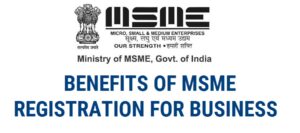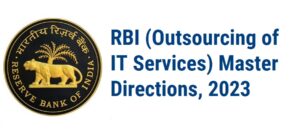Page Contents
- Types of Convertible Debentures
- Procedure for Issue of Debentures
- CCD Valuation
- Accounting Treatment and Reporting
- Advantages and Disadvantages of Convertible Debentures
- CCDs and the Companies Act, 2013
- Possibly Convertible Debentures
- Taxation of Convertible Debentures
- Conclusion
- FAQs about Convertible Debentures
Types of Convertible Debentures
There are three types of convertible debentures in India:
Fully Convertible Debentures (FCDs)
FCDs are the most common convertible debt instruments. They are fully convertible into equity shares within a specified period and at a predetermined conversion price. FCDs can also carry a fixed interest rate.
Partly Convertible Debentures (PCDs)
PCDs are debt instruments where only a specific portion can be converted into equity shares. The remaining part of the debenture continues as a debt with a fixed interest rate.
Optionally Convertible Debentures (OCDs)
OCDs are debentures that give the holder the option to convert the debt into equity shares at a date and a predetermined price.
Compulsorily Convertible Debentures (CCDs)
CCDs are debt instruments that are mandatorily converted into equity shares within a specific time. CCDs serve as an alternative to equity shares and have become popular in recent years.
Procedure for Issue of Debentures
The company must follow specific guidelines when issuing debentures in India. The following documents must be in place:
- Type of resolution needed to issue convertible debentures
- Terms of the issue
- The details of the convertible debentures
- Valuation report for compulsory convertible debentures
CCD Valuation
CCD valuation is calculated by dividing the equity value by the total number of shares. The value per share is then multiplied by the number of debenture shares to derive the CCD valuation.
Accounting Treatment and Reporting
CCDs must be reported as a liability in a company’s balance sheet. When converted into equity shares, the debenture value is transferred to share capital.
Advantages and Disadvantages of Convertible Debentures
Convertible debentures have several advantages, such as:
- Provide flexibility to raise capital without determining the share price
- Eliminate the need to repay debt on a particular date
- Reduce the cost of capital
- Build investor confidence
The downside of convertible debentures can include:
- Dilution of ownership when debt is converted to equity
- Increased debt-to-equity ratios
- Potential difficulties in finding buyers when selling CCDs
CCDs and the Companies Act, 2013
The Companies Act, 2013, regulates the issue of CCDs. CCDs can be issued to Indian residents, non-residents, and foreign entities, depending on conditions provided by the RBI.
Possibly Convertible Debentures
Guidelines for optionally convertible debentures are specified by the Companies Act, 2013. The Act states that the conversion of OCDs into equity shares can be done if the terms and conditions of the agreement are fulfilled.
Taxation of Convertible Debentures
The interest paid on convertible debentures is considered an expense and can be claimed as a deduction for tax purposes. When the debenture is converted to equity shares, it can trigger a tax liability.
Conclusion
Convertible debentures offer companies the flexibility to raise capital without determining the share price at the outset. In India, SEBI guidelines regulate the issue of convertible debentures, and companies must follow specific procedures. However, convertible notes come with advantages and disadvantages and should be considered carefully before issuing. Consultation with a financial advisor is strongly recommended to navigate the legal and financial aspects of convertible notes.
FAQs about Convertible Debentures
Q: What are convertible debentures?
A: Convertible debentures are a type of debt security that can be converted into equity by the holder. They are commonly used by companies to raise funds from investors while also offering potential equity participation if the company performs well.
Q: Is CCD debt or equity?
A: CCD (Compulsorily Convertible Debentures) is a type of hybrid security that starts as debt and is eventually converted into equity.
Q: What are compulsory convertible debentures under Companies Act, 2013?
A: Compulsory convertible debentures are a type of debt security in which the holder is required to convert the instrument into equity after a specific period. Under the Companies Act, 2013, such debentures are deemed to be equity shares from their date of allotment.
Q: Can we redeem compulsorily convertible debentures?
A: Compulsorily convertible debentures are redeemed by converting them into equity shares. They cannot be redeemed for cash or any other form of consideration.
Q: What are the benefits of compulsory convertible debentures?
A: The key benefits of compulsorily convertible debentures are that they allow companies to raise funds at lower interest rates compared to other debt instruments, while also potentially offering stockholdership if the company performs well. This enables companies to attract long-term investors who are willing to take on more risk.
Q: Is DRR required for compulsory convertible debentures?
A: Yes, companies are required to create a Debenture Redemption Reserve (DRR) for compulsorily convertible debentures along with other debt securities.
Q: What are the two types of convertible debentures?
A: The two types of convertible debentures are partially convertible debentures and fully convertible debentures.
Q: What is the difference between fully convertible debentures and compulsory convertible debentures?
A: Fully convertible debentures are convertible into equity shares at the option of the holder, while compulsorily convertible debentures mandate the conversion of the instrument into equity after a specified period.
Q: Can compulsorily convertible debentures be converted into preference shares?
A: No, compulsorily convertible debentures cannot be converted into preference shares.
Q: Can a company issue compulsory convertible debentures?
A: Yes, a company can issue compulsorily convertible debentures subject to certain conditions prescribed under the Companies Act, 2013.
Q: What is the maximum period of CCD?
A: The maximum period of compulsion for conversion of CCDs into equity shares is five years from the date of allotment.
Q: Can OPC issue non-convertible debentures?
A: No, an OPC (One Person Company) is not permitted to issue non-convertible debentures.
Q: Can convertible debentures be converted into equity shares?
A: Yes, convertible debentures can be converted into equity shares based on the terms and conditions specified in the agreement.
Q: What is the procedure to issue debentures by Private Company?
A: A private company can issue debentures by following the procedures prescribed under the Companies Act, 2013. The company must pass a board resolution, prepare a debenture trust deed, and file relevant forms with the Registrar of Companies.
Q: What is the process of compulsory convertible debentures?
A: The process of compulsorily convertible debentures involves the issuance of debentures that are mandatorily converted into equity shares after a specified period.
Q: What is an example of a convertible debt?
A: An example of a convertible debt is a bond that can be converted into common stock at a specified price over a certain period.
Q: What is the difference between non-convertible and convertible debentures?
A: Non-convertible debentures cannot be converted into equity shares, while convertible debentures can be converted into equity shares or stock.
Q: What is the difference between convertible debentures and optionally convertible debentures?
A: Optionally convertible debentures provide an option to the holder to convert them into equity shares, while compulsorily convertible debentures are mandatorily converted into equity shares after a specified period.
Q: Why do companies issue convertible debentures?
A: Companies issue convertible debentures to raise funds from investors while also offering the potential for equity participation. This enables companies to attract risk-taking investors who are willing to invest in the long term growth of the company.
Disclaimer:
The content of this article is for information purpose only and does not constitute advice or a legal opinion and are personal views of the author. It is based upon relevant law and/or facts available at that point of time and prepared with due accuracy & reliability. Readers are requested to check and refer to relevant provisions of statute, latest judicial pronouncements, circulars, clarifications etc before acting on the basis of the above write up. The possibility of other views on the subject matter cannot be ruled out. By the use of the said information, you agree that the Author / Treelife Consulting is not responsible or liable in any manner for the authenticity, accuracy, completeness, errors or any kind of omissions in this piece of information for any action taken thereof.






